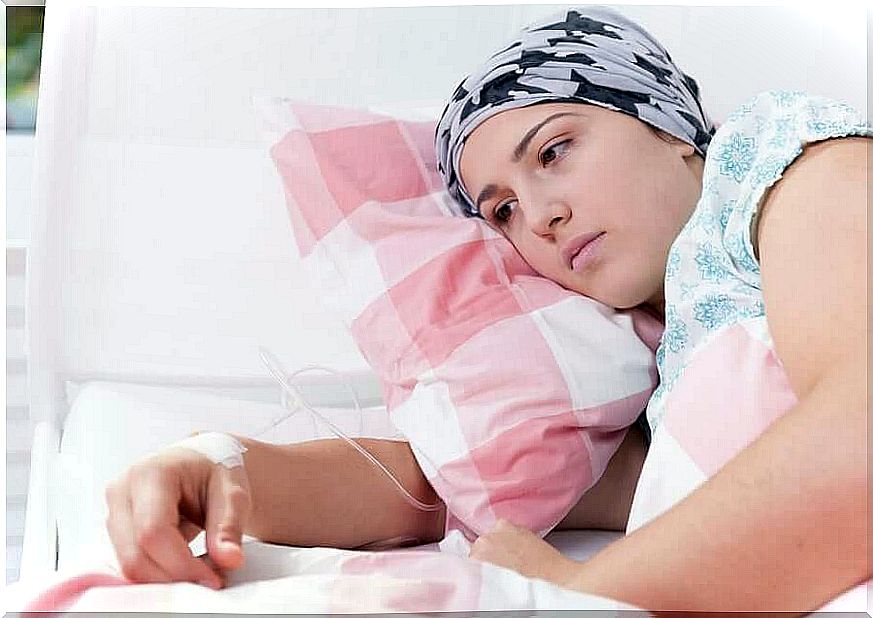Cancer Affects A Patient’s Physical And Mental Health

Cancer is one of the most common diseases in the world. In 2018 alone, 18.1 million new cases were diagnosed. In addition, the number of patients is projected to continue to grow in the coming decades, reaching as many as 29.5 million new diagnoses annually by 2040.
Although many different factors can be found for the cause of cancers – genetic origin, infection, radiation or, for example, exposure to chemical carcinogens – lifestyle-related cancers are also high.
For this reason, tobacco, alcohol, a passive lifestyle, chronic stress, obesity, and unhealthy nutrition are factors that either directly or indirectly increase the risk of developing malignancies.
Like all other diseases that develop over time with high mortality, cancer affects both a patient’s physical and mental health.
How do patients respond to the diagnosis?
In the face of a malignant tumor diagnosis, patients react in very different ways. The patient’s reaction usually depends on both his or her personality and the importance that the cancer represents to him or her. According to Moorey and Greer (1989), patients respond to diagnosis according to their own adaptation style. The five most common of these are:
- Fight. The person is proactive about the disease, seeks information and participates in treatment.
- Prohibition. The patient does not talk about his diagnosis and acts as if the cancer did not even exist.
- Fatalism. The patient puts himself in the worst case scenario, regardless of whether he has objective data to support this claim.
- Despair. The patient has too many negative thoughts that contribute to depression.
- Anxious worry. The patient has great difficulty in managing the uncertainty caused by the disease.

Does the patient’s emotions change over time?
Just as patients go through different stages of physical illness, so do their thoughts, feelings, and emotional states develop and adapt to each different stage of cancer.
Therefore, these situations change largely because, for example, the patient responds well to treatment and finds a cure compared to, for example, a situation where the cancer treatment is partial remission or recurrence, or if the cancer has metastasized or progressed at a terminal stage .
For this reason, both the patient’s own personality and the stage of the cancer at which the diagnosis is made largely determine how the cancer affects the patient’s mental health.
Anxiety and depression in cancer patients
Anxiety and depression are the most common psychological reactions in cancer patients.
Depression
According to various studies, the incidence of depression can range from 4% to as many as 58% of patients, depending on both the type of population studied and the different stages of the cancer.
About 40 percent of cancer patients suffer from depression, a very high percentage of the total population. In Europe, for example, this corresponds to 3-5% of the population.
Depression can cause a patient to have less control over the symptoms of the disease and to refuse treatment more often.
For this reason, it is important that the environment be able to identify the patient’s depressive symptoms and maintain direct communication with a psycho-oncologist or support person who provides emotional support to the cancer patient.

Anxiety
Cancer can cause many situations in which patients feel nervous or even intense fear. Some of the most common reasons are:
- Reactive anxiety at diagnosis.
- Difficulty managing a feeling of insecurity.
- Reactivation of previous anxiety: phobias, panic attacks, generalized anxiety, or post-traumatic stress.
- Fear of physical suffering and pain.
- Feeling of losing control.
- Existential anxiety.
- Increased anxiety as a side effect of cancer drugs.
- Suffering from the pain of the patient’s loved ones.
- Fear of treatments (side effects, surgical procedures, physical and psychological consequences).
- Fear of death
Emotional support is important
Cancer survival rates have improved in recent years for many different types of cancer, but it is still a fatal disease for numerous patients. And because the disease is so unpredictable, cancer affects both the patient’s physical and mental health.
Often, family members focus more on the results of tests or cell samples, leaving the patient with an emotional state in the background. However, studies show that a patient can suffer from depression and anxiety caused by a cancer diagnosis in a significant way.
For this reason, it is essential that the patient’s loved ones learn to provide them with emotional support, either through special training or, alternatively, in consultation with a therapist or a specialist in psycho-oncology.
In Finland, support person activities are also organized for cancer patients. The role of cancer organization support staff is to help a patient with cancer and their loved ones at different stages of the disease. For example, the support person can act as a support for the patient from the beginning of the diagnosis to healing or convalescent care, or simply as an everyday friend, taking the patient’s thoughts away from the diagnosis. Support staff activities are voluntary. Anyone interested can find out more about the topic from regional cancer associations and national patient organizations.
In addition, emotional support for the various stages of the disease and mental illness can also be sought from the cancer clinic’s own psychosocial unit, the cancer patient counseling service and social workers. Domestic Cancer Organizations also offer completely free counseling to cancer patients and their loved ones.









